Editor’s Note: This story was originally published in The Nostalgia Issue of Life & Thyme.
——
I am inside Sophie Sellu’s new studio, tucked inside an industrial estate in South East London. The clouds are thick in the sky as another lightless London day swings into action, but the small white space glows. An orange candle flickers in the corner as I run my hands over her newest creations—two ochre-coloured butter knives crafted from walnut. This is the Grain & Knot studio, where Sellu carves cooking utensils from reclaimed wood. She works alone in here most days, cutting away at a single piece while the coiled chippings collect at her feet.
Wood is an interesting medium for many reasons. Sometimes it fights against you as you cut into it, and sometimes it gives way like butter. Sometimes the different shades and textures lie on the surface, and sometimes you need to dig down to unearth them. Different woods have different smells, and some hold the stories of centuries within them. But these were not the reasons Sellu started selling hand-carved wooden spoons in early 2014. For her, it was about the beauty of functionality. “When I went to that first carving class, the thing that caught me most was making something that could be used,” Sellu tells me. “My previous job was seemingly creative, but I wasn’t making anything you could actually touch. Everything was inside a screen. When I picked up that wood I started making things that fit into life. That was what excited me most.”

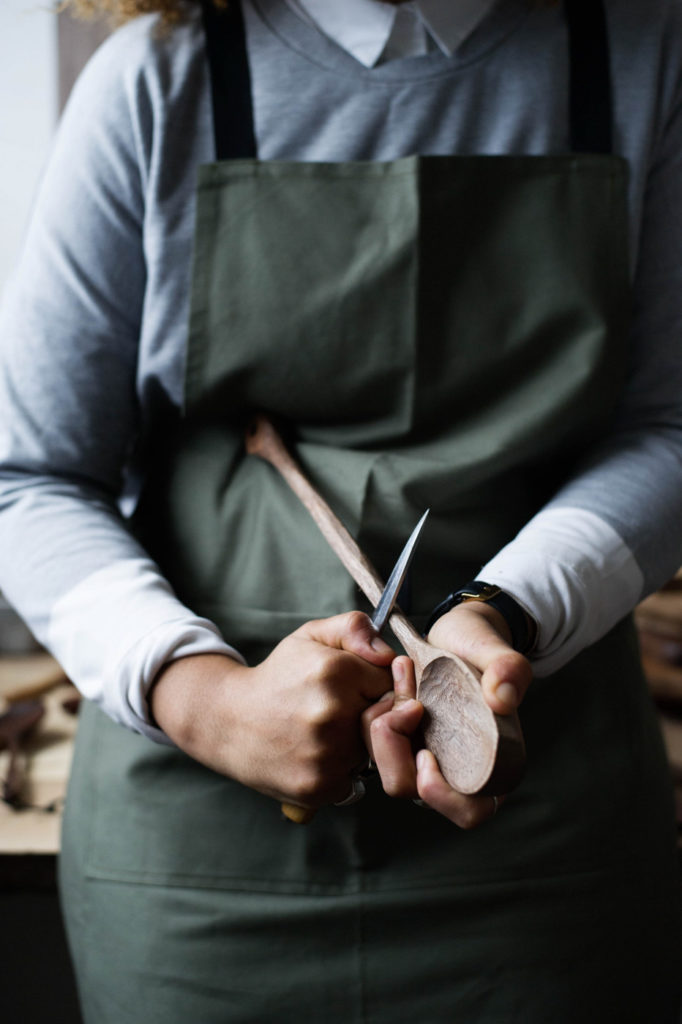
Before launching Grain & Knot, Sellu worked as a concept designer at a clothing brand. Like so many creatives who jump from their old lives into something new, Sellu was dissatisfied. “I hated it,” she says defiantly. As luck would have it (although she may not have felt that way at the time), Sellu was let go from the job, and found herself considering her future once more. It was in this cavernous interim that Sellu signed herself on for a day’s woodworking course in Sussex. “I went out the next day and bought all my own tools,” she tells me. “I became instantly obsessed. I was rubbish at first. But after that I carved a spoon every day for a year.”
In the months following her first taste of woodcarving, Sellu became immersed. Her days began to shape around it as she started to find her own creative license. “I went from making standard things to coming up with new designs. That’s when I started concentrating on the kind of pieces you see today,” she explains. Woodcarving is still a unique practice, and Sellu’s interest came as little surprise to her family. “I used to love making things when I was younger. I’ve always been a tomboy, always been very hands-on,” says Sellu. “When I started the woodcarving, my friends and family just said, ‘Leave her to it.’”
“They thought I was just going through a phase and being creative. I told my mum I’d bought an axe and she said, ‘Your sister comes home with shoes and handbags, and you come home with an axe!’” she continues. “My sister will get clothes catalogues delivered to the house, and I get wood and tools. They weren’t surprised when I told them this was what I wanted to do.”
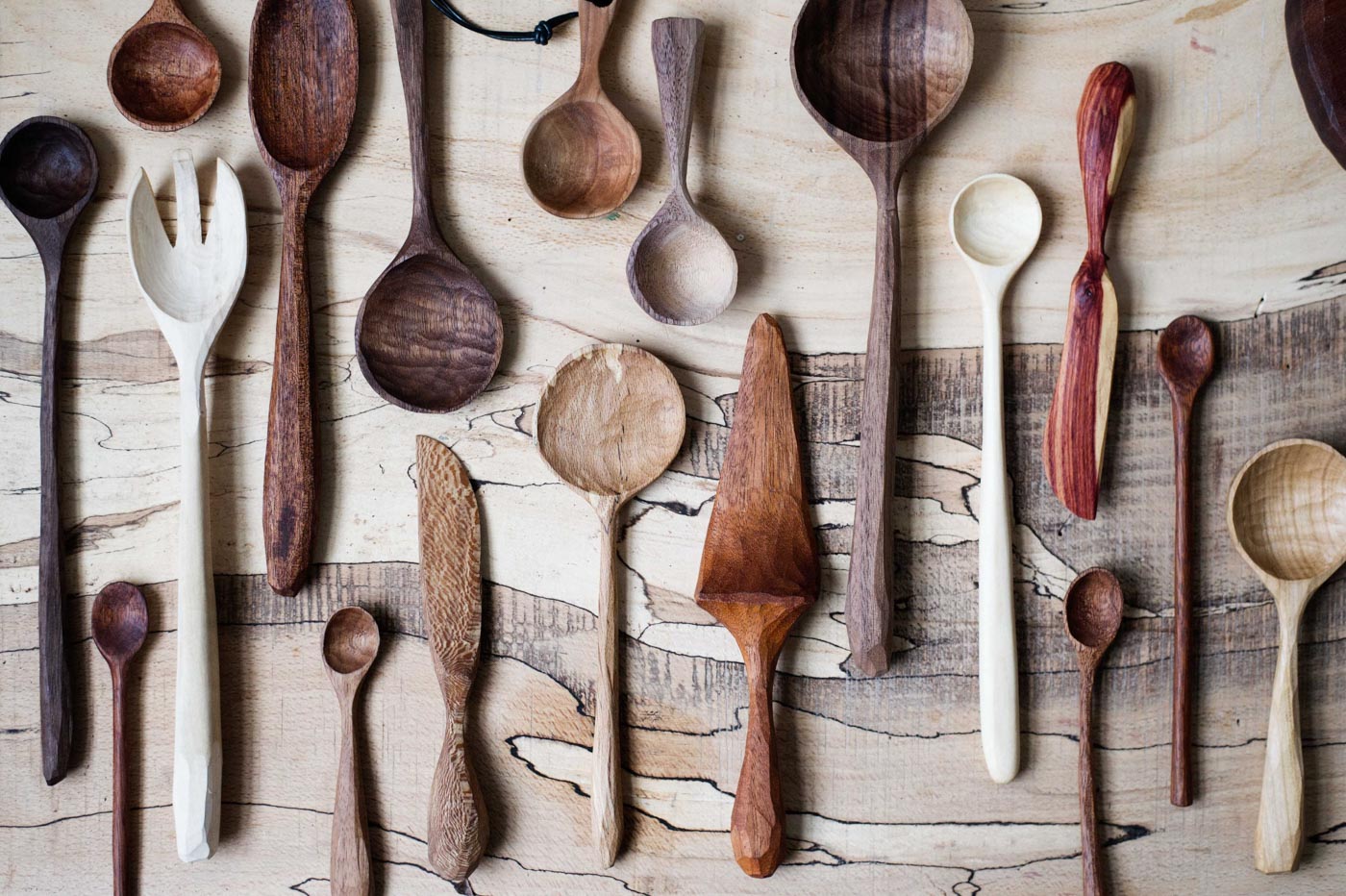
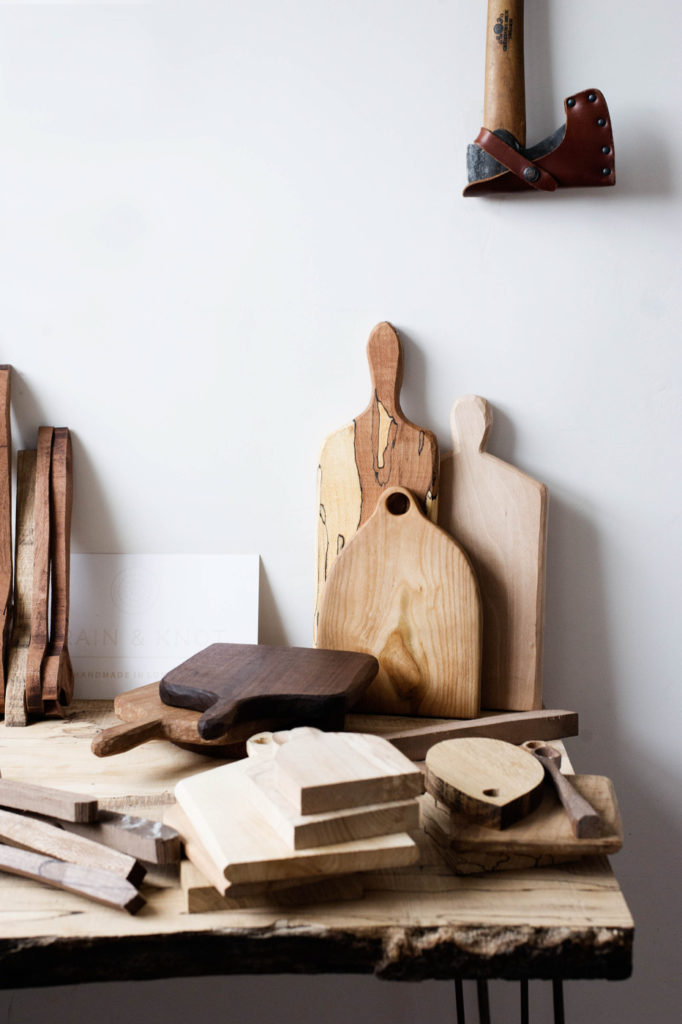
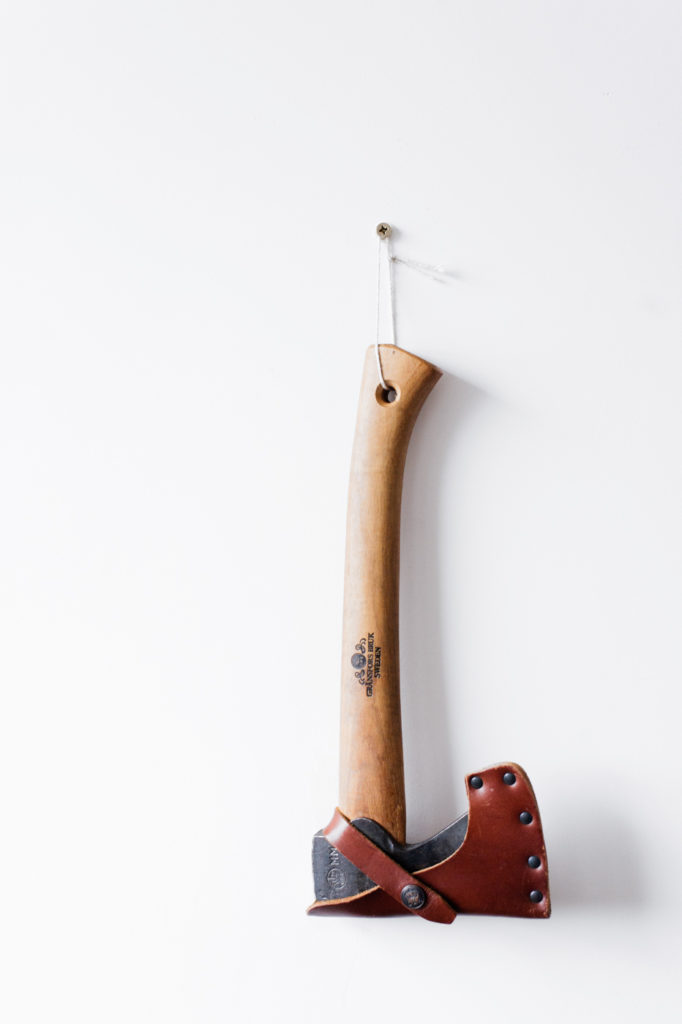
It was in the garage of her parents’ West London home where Sellu refined her skills, locking herself away to experiment with pieces of off-cut wood donated by friends and family. Like so many before her, Sellu fell in love with the act of creating. Though it took her time to contemplate making a living from it. “I always wanted to make stuff, and I always wanted to work for myself. I just didn’t know how,” Sellu says. “I never thought it was going to become a career. I didn’t leave the class thinking, ‘This is my business.’ I wanted to keep doing it because it satisfied me and I enjoyed it. It was only when my friends and family started encouraging me to sell my pieces that I realised I had to take the leap.” And leap she did, launching her website soon afterwards. Since then, Grain & Knot has filled the pages of magazines, has been featured in the kitchens of some of the most celebrated chefs in England, and has sold out online every week.
Woodcarving requires three things: a pair of hands, sharp tools and time. This last ingredient is perhaps the most challenging. Each of Sellu’s unique pieces commands hours of her attention. Sipping strong coffee, I watch her peel back curls of beech to form a large cooking spoon. I watch her candle the wood and skim through each chunk, revealing another portion of the finished piece. Only then I realize: I can’t remember the last time I saw someone making something entirely by hand.
There is magic to ancient crafts in modern environments. As London blares on as one of the world’s most chaotic, progressive cities, some of its inhabitants are revisiting artistries of old. “Everything is becoming so flat,” Sellu tells me. “We are surrounded by screens and smooth surfaces. So the creative industries are building things that are tactile, and working with interesting textures. There’s something extraordinary in touching things that are organic, and making use of something that has a history,” she continues. “People are coming back to old techniques. They want to use things that have taken time to create, they like a story behind the things they use.”
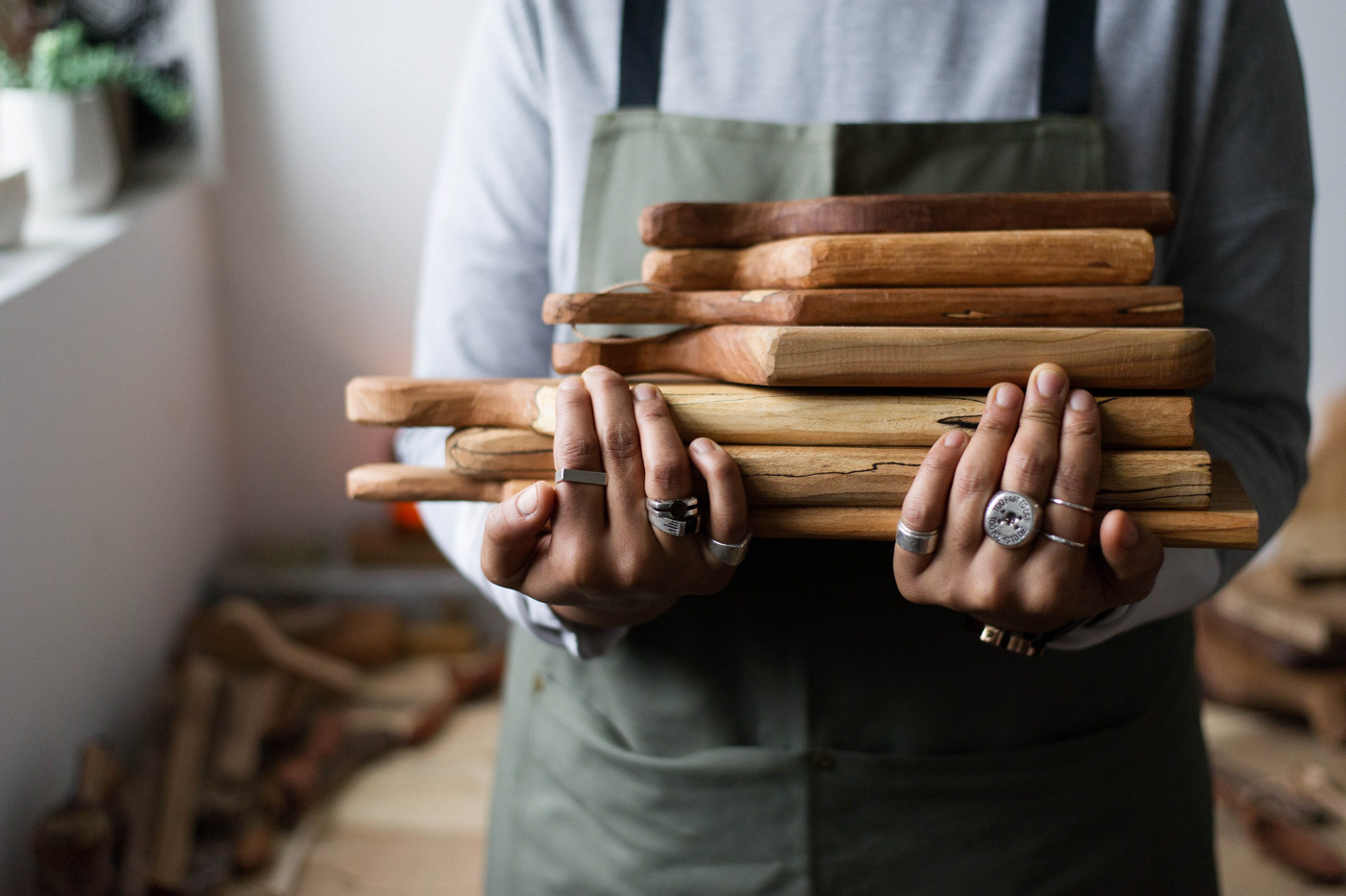
Sellu speaks with a half-made porridge spoon in her hand. These supple, robust spoons made from timber offcuts have become Grain & Knot’s signature product. “It was one of the first things I made,” Sellu explains. “I wanted to make something special. Everyone loves porridge, and I think it adds to the experience of eating.” And it’s true, holding its buttery handle and bringing the smooth wood past your lips, steaming with porridge, has a certain charm to it. Stainless steel suddenly feels harsh and uninviting in its shadow.
It is the strange imperfections of wood that capture Sellu. The most striking pieces are spoons flecked with discoloration, or boards streaked with irregular lines. Many pieces are made using spalted wood—marbled with black lines as a result of fungal decay. Some of her most arresting creations are the most flawed. “I like to leave traces of the production, I try not to sand down too much,” Sellu says, stroking the coarse edges of a walnut spatula. “I think my favourite wood would have to be walnut. I love all the colors. Sometimes you can’t see the grain until you’ve dug down, so you’re waiting to find the colors.”
Sellu’s wood comes from “all over.” She has a carpenter friend, and a friend who is a tree surgeon. Her uncle is a builder and delivers piles of unwanted scraps after each of his jobs. These abandoned parts go on to live inside the homes of Grain & Knot’s customers. With her craft, Sellu breathes new life into the disused. “My uncle gives me all of the bits that were going to be thrown away,” she says, picking up a honey-colored chopping board with dark, jagged edges. “This board came from a beautiful old house in South London. This mahogany was on the staircase. It’s a rare kind that you can’t really buy anymore. This tree would have been hundreds of years old when it was chopped down, and been in that house for a hundred years. It was just going to be thrown away. Now it’s living on its life. That is really special.”
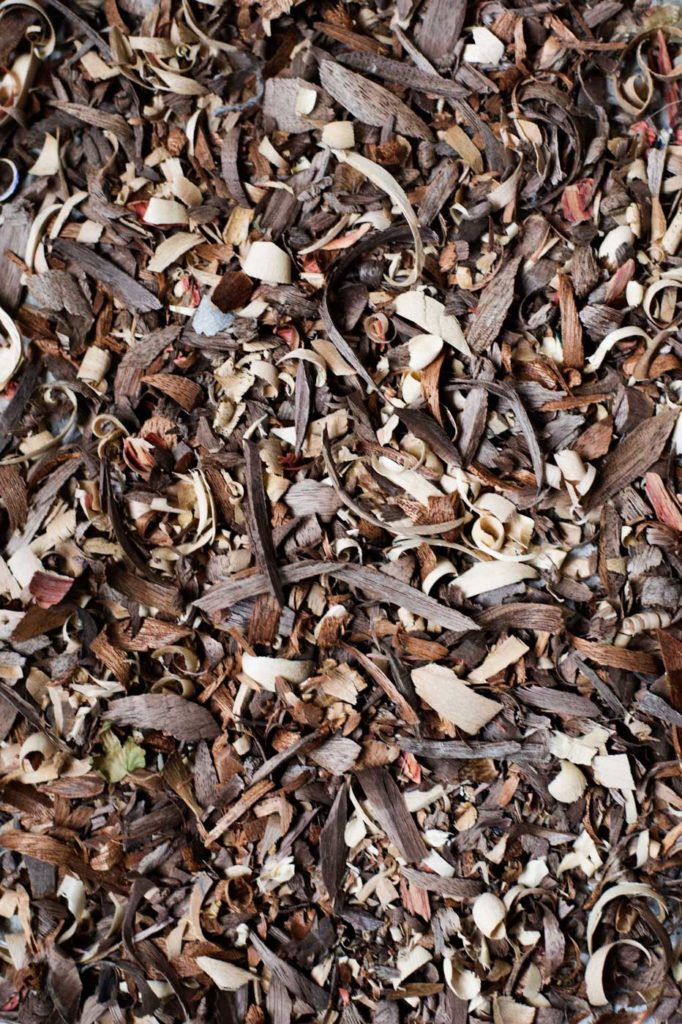
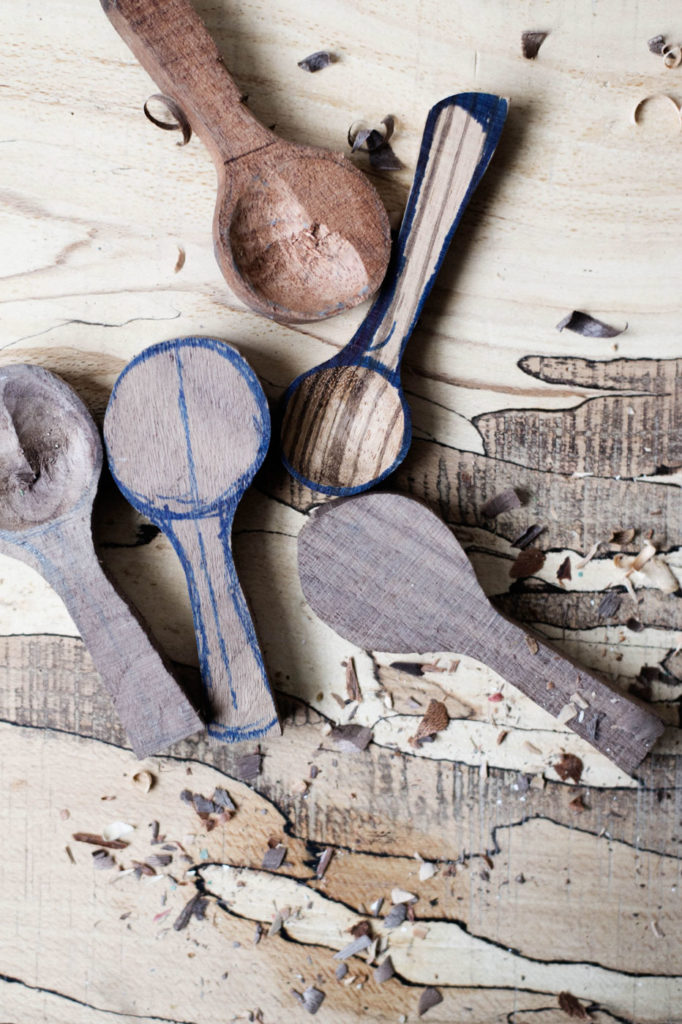
As rare as woodwork itself is nowadays, so is the notion of working alone without a team beating beside you. I wonder whether Sellu ever misses the company of an office. I attended one of her woodcarving workshops and was struck by how internal the practice is. When handling a vicious scalpel and a flimsy piece of wood, your entire attention is required, and your thoughts lap over each other. “When you work on your own you spend a lot of time inside your own head,” she says. “I can’t listen to music when I work. If I listen to something my head fills with thoughts. I always think back to when I was working in an office and just hating it. Now I can choose my time. I work when I feel inspired to, rather than forcing it at 9 a.m. every morning.”
She looks out of the window again, the light bouncing off her wild curls. “I’m surrounded by people doing creative things here. There’s a set designer next door and a lighting designer opposite,” she says. “Of course, it can get lonely sometimes. But when I see people’s response to the work it reminds me why I’m doing it.”
I leave the warmth of Sellu’s studio and return home. I wander into the kitchen and turn my Grain & Knot spoon over in my hands. I am suddenly curious about its past life. Perhaps it was once a step in a Victorian house. Perhaps it lined the edges of an art gallery. Maybe it was once a school floorboard, worn by generations. Whatever it used to be, it lives on now. It is an everyday pleasure to use. Flaws and all.





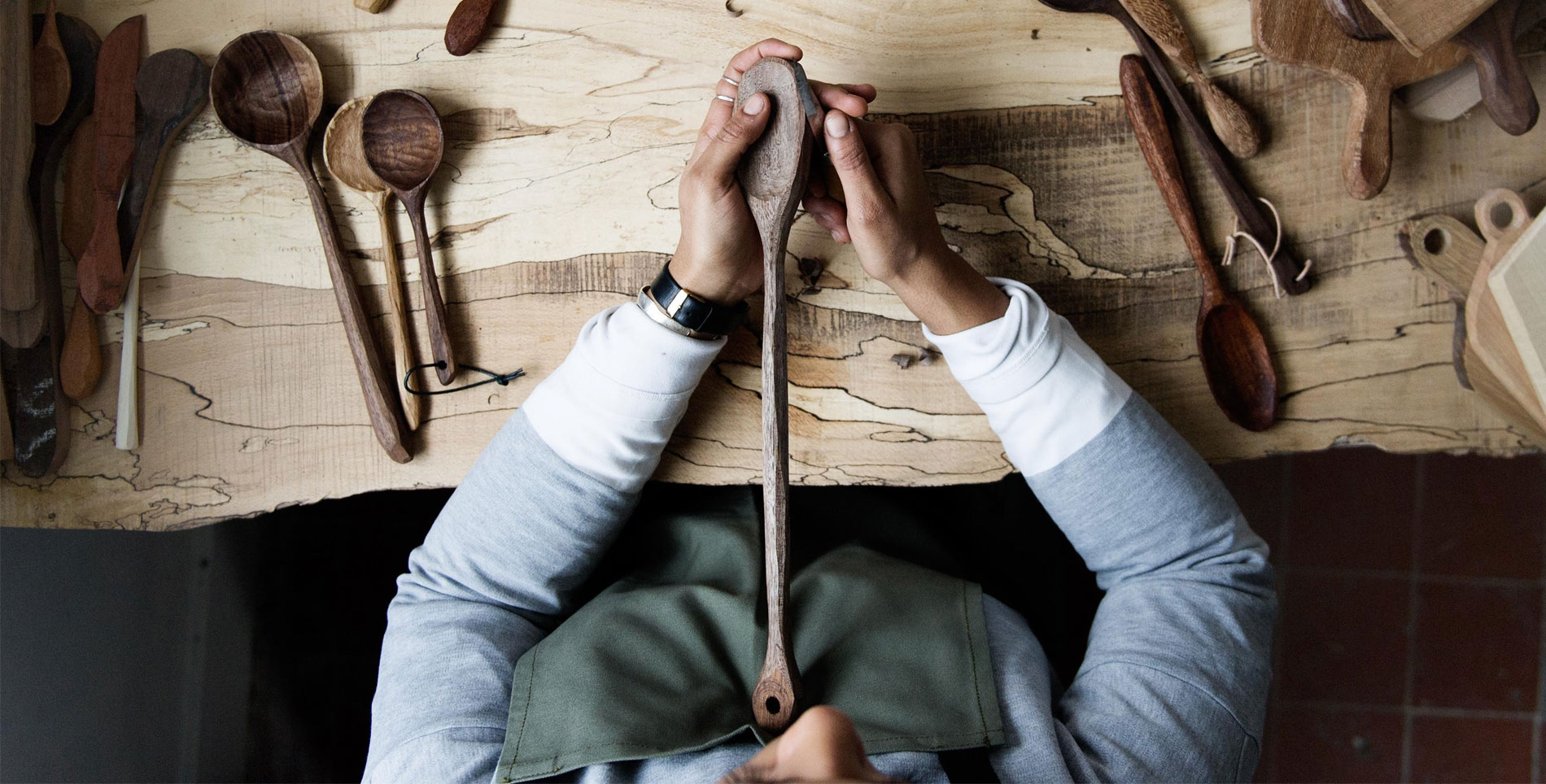

Our comments section is for members only.
Join today to gain exclusive access.